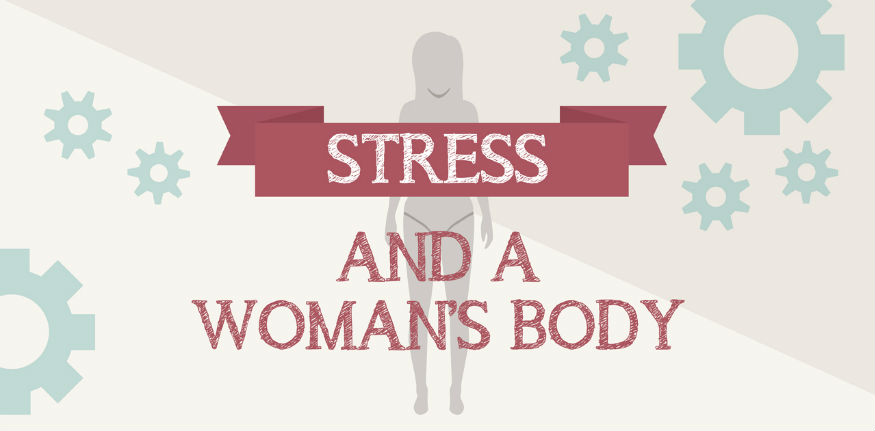 michaeljung/Fotolia
michaeljung/Fotolia
Even good things will cause your body to go through its stress response paces. Healthy stress is also known as eustress.
What is Eustress?
Eustress results from positive situations and opportunities, clinical psychologist Melanie Greenberg, Ph.D. said in an article on Psychology Today's website. And unlike the sometimes harrowing aftermath of bad stress or distress, you will be more likely to experience relief, pleasure and excitement if you are experiencing eustress or happy stress.
According to the Merriam-Webster Dictionary website, eustress is "a positive form of stress having a beneficial effect on health, motivation, performance, and emotional well-being."
When The Stress Response Goes On for Too Long
Where stress becomes bad, even if it started out as eustress, is when it is so prolonged that the body's resources become depleted, and we aren't able to move from fight-or-flight to the rest-and-recovery mode. Too much stress for too long can lead to high blood pressure, breathing can become faster, and overall tension may increase.
Some deal with chronic stress by eating too much, or not enough. Others drink, smoke or lean on other vices. Sleeping problems, digestive problems, and compromised immune systems are just a few of the other possible consequence of a life without rest or recovery.
The Upside of the Stress Response
The stress response is of course often associated with scares, and threatening situations, but if you can separate the body's reactions from the fear, some of them are not bad.
Your heart rate, and the intensity of each contraction, spikes. This causes more oxygen to be moved more quickly through your body, giving you more energy and leaving you more able to tackle the challenges in front of you.
Your pituitary gland steps up. It ships out stress hormones, one of which is oxytocin (the bonding hormone). Your ability to be courageous, empathetic, and intuitive expands. Your mood is elevated and you are more responsive to social commitments and relationships.
Your adrenal glands release adrenaline, cortisol and DHEA. Adrenalin and cortisol enable you to deal more effectively with stress. DHEA makes recovering after stress an easier transition.
Your senses are sharpened like Superman's ... well, maybe not quite like Superman's. But you are more alert, and more on top of your game, better able to wield some control over the situation. You are sharper, noticing what's around you more than usual. Your eyes let in more light due to greater pupil dilation. Your hearing becomes more acute.
Your gut, specifically your enteric nervous system reacts to stress hormones. You may have gentle butterflies of anticipation.
Rest and Recovery
Having your senses and abilities amp up to be equal to an unusual situation is actually something we perhaps don't appreciate enough. To be able to stretch and act out of a place of strength and increased stamina helps us roll with the stressors, both good and bad, in our lives.
When the stressors never seem to let up, that's when the deterioration on the mind, body and emotions can take a toll.
The idea that we can live without stress, or that we should aspire to do this, is unrealistic. Instead, it might be more useful to learn new and better coping mechanisms to move out of fight-or-flight and into rest-and-recovery as quickly as possible.
Sources:
Rethinking the Way We Look at Stress. Psychologytoday.com. Retrieved Jan. 24, 2016.
https://www.psychologytoday.com/blog/the-mindful-self-express/201404/ret...
Definition of eustress. Merrian-webster.com. Retrieved Jan. 24, 2016.
http://www.merriam-webster.com/dictionary/eustress
Eustress vs Distress. Brocku.ca. Retrieved Jan. 24, 2016.
https://brocku.ca/~webdev/healthservices/education/stress/good_bad.php
Why stress can be good for you — no, really. Thestar.com. Retrieved Jan. 24, 2016.
http://www.thestar.com/life/2015/06/02/why-stress-can-be-good-for-you-no...
Visit Jody's website at http://www.ncubator.ca
Reviewed January 25, 2016
by Michele Blacksberg RN





Add a Comment1 Comments
Stress is a normal part of human life and is required in certain quantities. However, in daily life stress leads to irritation, which then results in depression and anger. It is impossible for us to live a quiet, full of love, life. We need to know how to relieve stress.
January 25, 2016 - 12:43pmThis Comment